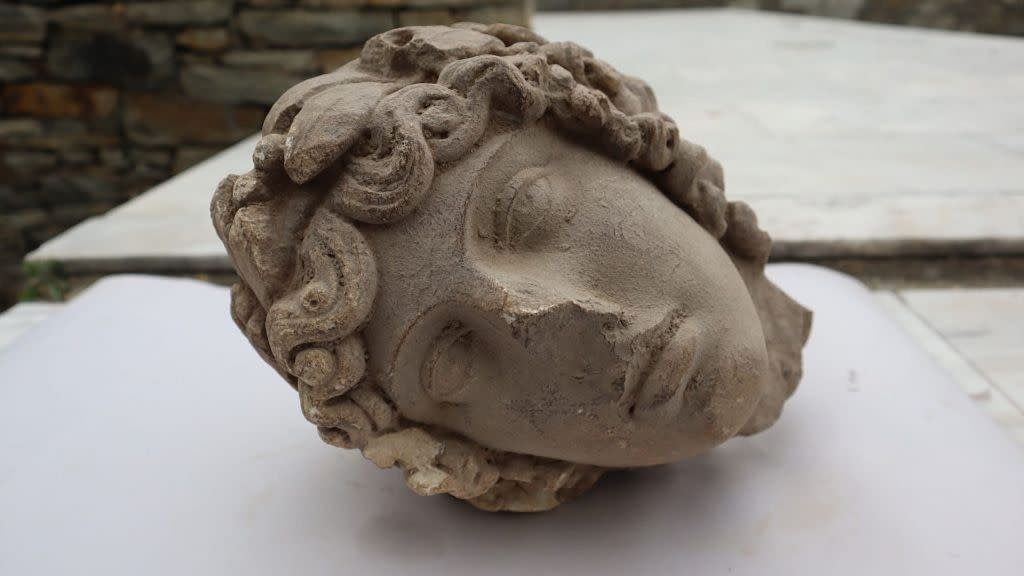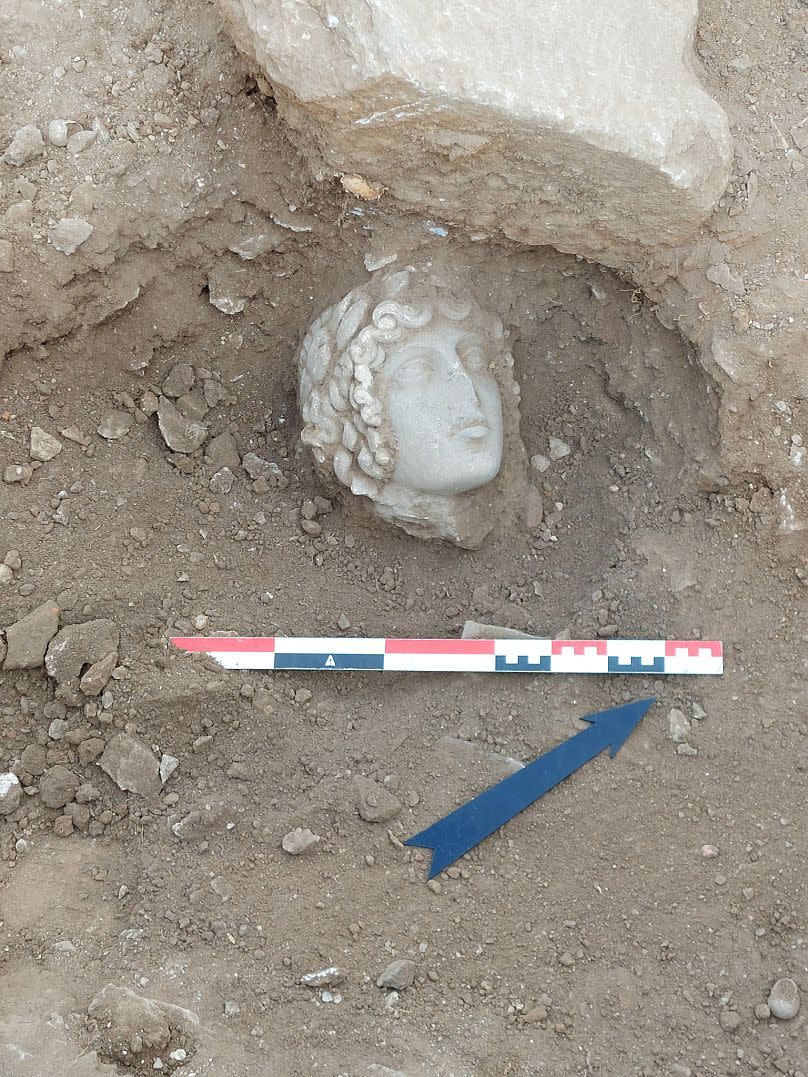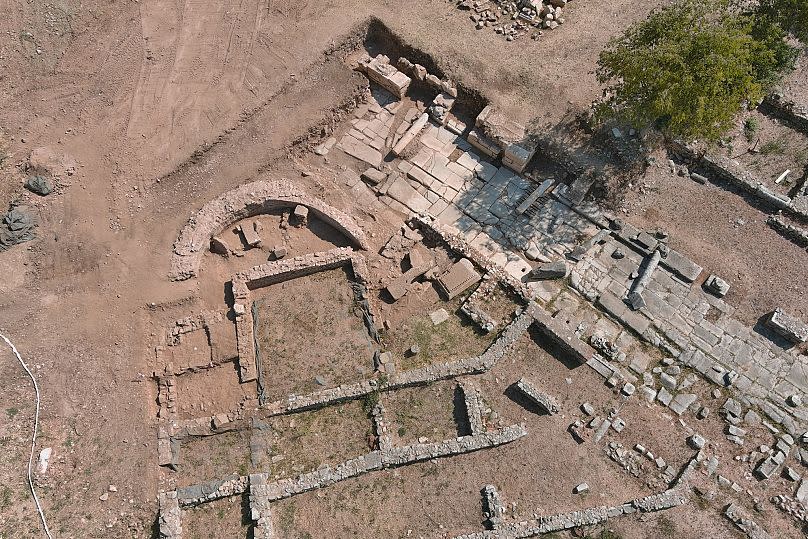Archaeologists uncover extraordinary 1,800-year-old marble head of Apollo in Greece

Archaeologists from Aristotle University of Thessaloniki recently unearthed a remarkably well-preserved marble head of the Greek god Apollo in the ancient city of Philippi, northwest Greece.
Dating back to the 2nd or 3rd century C.E., the head portrays a youthful depiction of Apollo, the Greek god of music and archery, complete with curly hair and his iconic laurel crown.
Discovered in late 2023 by a team of 15 students under the leadership of Professor Natalia Poulos, the head was found amidst ongoing excavations in Philippi, a project initiated by the University in the 1960s.
Spanish archaeologists restore extraordinary 3,000-year-old Egyptian coffin
Archaeologists discover 'remarkable' Roman villa complex at UK housing development site


While it would have been originally created for devotional purposes, the Apollo statue seems to have been repurposed during medieval times, possibly serving as part of a fountain decoration in a town square. The presence of a coin depicting Emperor Leo VI suggests the area's use since the 8th or 9th century.
Unlike some Greek gods, Apollo held no lasting symbolic significance in Christian Philippi. However, the continued presence of classical and Roman-era statues in public spaces, including the head of Apollo, signifies both the city's appreciation for fine artistry and its cultural continuity.
Situated east of Philippi's southern main road, the head was found within a gradually revealed square containing elaborately decorated buildings.
Notably, last year, a statue of Hercules was also discovered nearby, likely part of the same fountain ensemble, depicting the iconic hero wielding his club and a slain lion.


